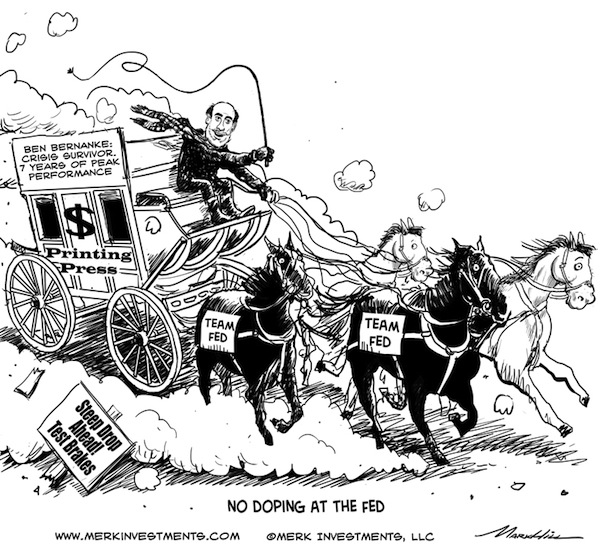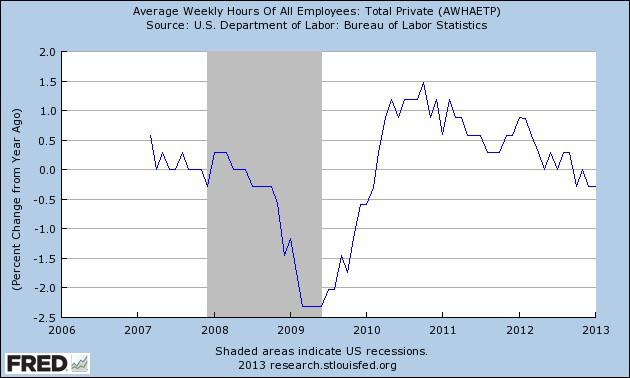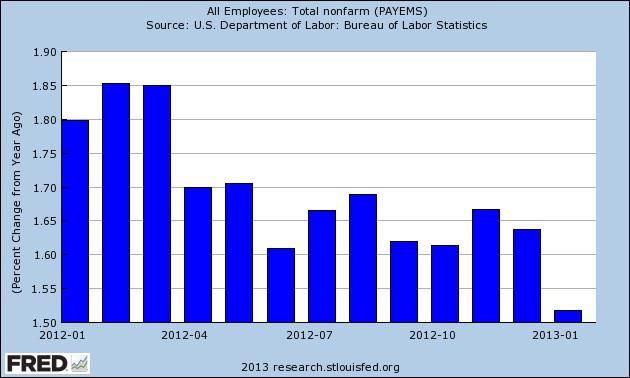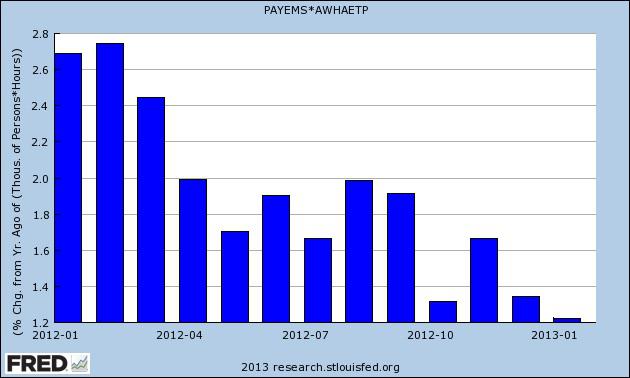And Keynesian, neo- or otherwise, would fall into the "Bad" Economics. Which is my point. It'd be like saying, there's no differing schools of Psychology, only good and bad Psychology and having one "School of Thought" teach that the Id and Ego exists while another teaches it doesn't exist. Friedman also thinks the Federal Reserve should be abolished, the ideal economic environment is Laissez-faire and is a Libertarian.
LOL, unfortunately for you, mainstream economists don’t share your beliefs about “bad economics”. The facts are that disagreement within a discipline does not mean the discipline is not a science. Groupthink maybe good for your particular ideology, but it does not make for good science.
As for Friedman, he never said he would abolish the Federal Reserve. That is you taking liberties with the truth again. Friedman was definitely a harsh critic of the Fed, and he had some valid criticism for the Federal Reserve. But he never threatened or recommended destruction of the Federal Reserve.
But, I digress, I'm curious Joe, when Baron John Maynard Keynes of Tilton in the County of Sussex used the term "Animal spirits" in his 1936 book The General Theory of Employment, Interest and Money (which was titled to sound similar to Eisenstein's General Theory of Relativity) WHAT exactly is he referring to? Do you have a sample of these "Animal Spirits" I can see for myself? Can you point to ANYTHING in nature and say, yup, there it is an Animal Spirit.
You are taking liberties with the truth again Michael. Keynes was born a commoner. He did not earn his peerage until June of 1942. His peerage (i.e. barony) was awarded to him for his work in the field of economics.
Keynes used the term “animal spirits” to describe human emotions. And human emotions are important as they are drivers of virtually all human decision making. Is there a point to you ranting?
Do you know Baron Keynes completely failed to predict the Great Crash of 1929 and lost pretty much everything. You want to know how he made his fortune back? By buttering in close with the Government. So, we can see why someone like Keynes (an anti-Semite by the way) wouldn't like Laissez-faire free-markets, because of them he lost his entire fortune. Of course he loved the State, it made him rich. Want to know who failed to predict the GFC? THE ENTIRE BOARD OF GOVERNORS AT THE FEDERAL RESERVE. Do you understand that when your theories are so incompetent you can't see the greatest economic collapse in 100 years, maybe ever, when it's staring you right in the face - then your 'theories' are proven to be wrong.
So no one has credibility unless they . . . kind of sort of . . . make a prediction of economic gloom and doom? In order to have credibility as an economist every economist must accurately predict every depression and recession? No one can do that; no one has done that, including Von Mises, Hayek and your fellow demagogues. No one in any of the sciences knows everything. Only God is omniscient.
Economists don’t have credibility unless they are spectacular investors? If that is so, why do you go to such lengths in vain attempts to discredit the most successful investor of the last century, Mr. Warren Buffet who happens to be a Keynesian and did express his reservations about derivative securities and the risk they posed to the economy prior to recent crisis? It takes more than knowledge of economics to be a successful investor, for you to suggest otherwise as you have done is at best extremely naive.
As for your machinations about Keynes alleged hatred of the free market, they are just that machinations and the imaginings of deluded minds. Keynes didn’t hate or bear any ill will towards free markets. Nor was he any more “anti-Semitic” than any other man or woman of the time and place where he lived. And if you object to Keynes work as a civil servant, why are you silent about Friedman’s employment as a civil servant? And Friedman didn’t butter up Ronald Reagan when Reagan gave him government appointments? Here is the bottom line, you don’t have any evidence Keynes butter up anyone or received any untoward rewards or attention from government. Your opinions are very biased and not based on fact.
So in your view, the validity of Keynesian economics boils down to two predictions, one before Keynesian economics had been published, and you ignore everything else that has occurred in the last century? The reason Keynes macroeconomic ideas received so much success this last century, is because they work.
“In the 1930s, Keynes spearheaded a revolution in economic thinking, overturning the older ideas of neoclassical economics that held that free markets would, in the short to medium term, automatically provide full employment, as long as workers were flexible in their wage demands. Keynes instead argued that aggregate demand determined the overall level of economic activity, and that inadequate aggregate demand could lead to prolonged periods of high unemployment. He advocated the use of fiscal and monetary measures to mitigate the adverse effects of economic recessions and depressions. Following the outbreak of the Second World War, Keynes's ideas concerning economic policy were adopted by leading Western economies. During the 1950s and 1960s, the success of Keynesian economics resulted in almost all capitalist governments adopting its policy recommendations.” – Wikipedia
It has already been definitively proven to you time and time again, that since the adoption of Keynesian economic policies, economic recessions have been fewer and shorter in duration and economic expansion has been stronger and longer and inflation has remained low. Those are some of the many facts you like to repeatedly ignore.
Do you see how simple this is? Very simple Joe. But the Federal Reserve isn't actually about making predictions - it's about maintaining the statuesque. Which is why when push came to shove, they SOLD OUT the middle class to maintain the VAST fortunes of the top 0.01%.
Hogwash, this is just more of your demagoguery. You are just repeating conservative talking points, ignoring the reality that has been repeatedly demonstrated to you for years now.
Preface to Keynes German Ed of his "General Theory" on Economics
That is more hogwash, it is not true. Instead of spending all your time in right wing misinformation sites and repeating the misinformation they promulgate, you would be better served by actually reading and doing your own research.
Oh, gee look here, in addition to sympathizing with Fascism, he's also a Psychologist. Tell me Joe, what's "Theory of Psychological Laws" mean?
You need to get your facts straight. If you are going to quote Keynes, do it. But don’t repeat the made up trash that is the bread and butter of right wing nut case web sites. This is not the first time you have been found falsely attributing words to an individual. If the facts supported your ideology, you and those who share your ideology would not need to lie.
When "The Great" Federal Chairman Alan Greenspan used the words "irrational exuberance" what exactly IS he referring to? Could you point to something and say, here it is, some "irrational exuberance". Could you give me an example of irrational exuberance Joe? How do you know you're not infected with irrational exuberance? Maybe you're looking at the 14000 Dow and it's giving you a case of irrational exuberance?!
I'd also like to know, which Psychological School of Thought was Keynes? How about Krugman? What about Greenspan? How much Psychology is there in Economics Joe? We already know there are VASTLY different Schools of Thought in Psychology. This is why I said, at the very beginning, Economics is a type of Psychology. Which is why you'll see the great disparities in Schools of Thought. It's a CLEAR SIGN that the discipline is NOT well grounded in Science. AND it's not! It's NOT POSSIBLE to apply the Scientific Method to macroeconomics. IMPOSSIBLE JOE.
DO
YOU
UNDERSTAND
THIS
?
Not possible.
Tell me Joe, when Bernanke talks about "Confidence" in the market, what is this thing he called "Confidence". Could you put some in a test-tube for me? I'd like to take a look myself? Which School of Psychological Thought does Bernanke belong to? The one from Stanford that says putting children in daycare breaks the bond with the mother and is detrimental to their mental development and well-being OR the one that runs the Australian Government and hands out Public Tax Money (aka: Vouchers) to PAY mother to put their 6 WEEK OLD INFANTS into LONG-TERM so-called Daycare.
Because you see Joe, if we happen to have a Sociopath running our Fascist Economy then it's more than likely we're going to see a lot of little sociopaths.... and gee, after 50 years of Progressive Economics, we do.
In closing, if you cared to step back and see the forest for the trees, to actually look at things from a different perspective, you'd find yourself confronted with this simple question: Is the initiation of force moral or immoral? Ethics clearly states it's immoral. It's that simple. If you build your society, of which economics is a fundamental aspect of, as fundamental to society as water is to fish, then you should do so morally. Which is why I continue to tell you, TAKE A LOOK out your palace window Joe. Smell anything yet?
The rest of your post is just a dump of irrational ravings. And as I have told you many times before, I find it odd that you think you are taking the side of the average Joe and Jane when your argument is to let the top 1% do whatever they want without restraint . . . that is the core of Libertarian ideology. And while you are not able to see fact, to see history, others are. That is why Libertarian ideology has been and remains a fringe ideology.




